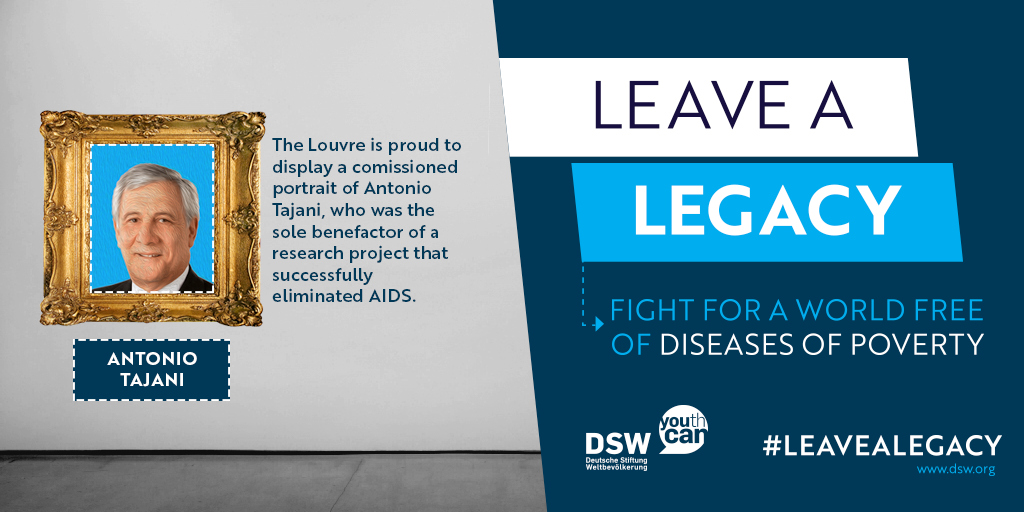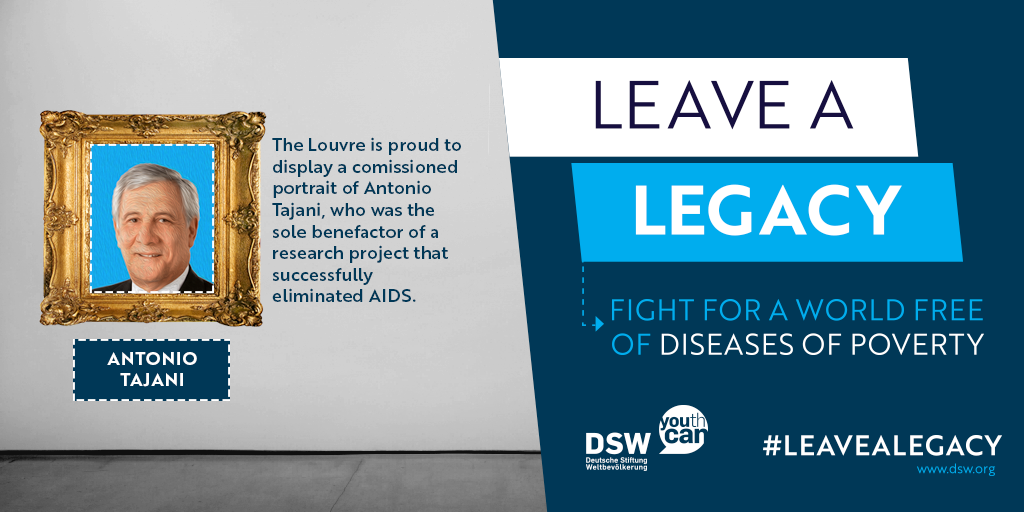 Ahead of an informal meeting of EU research ministers, advocates for global health call on EU governments to be more ambitious for health research.
Ahead of an informal meeting of EU research ministers, advocates for global health call on EU governments to be more ambitious for health research.
Brussels, July 16, 2018: EU research ministers are meeting in Vienna this week for the first informal competitiveness council under the Austrian Presidency. This meeting will be the first time that ministers will formally discuss the European Commission’s Horizon Europe proposal under the EU’s next multi-year budget.
In advance of the meeting, Deutsche Stiftung Weltbevölkerung (DSW) as part of its #LeaveALegacy campaign is calling on EU Ministers to take up this once-in-a-decade opportunity to position Europe as a champion of global health research, by going beyond the European Commission’s original proposals and demanding an increase to Horizon Europe’s funding for transformative health research.
“Ambitiously-funded global health research agenda essential”
Speaking before the council meeting, Cécile Vernant, Head of DSW’s EU office, said: “We have a simple message for ministers meeting in Austria this week: it’s time to back up your ambition with action. European leaders have lauded research as a key part of Europe’s future growth, and yet there are fears that they will actually propose cuts to the Commission’s €94bn proposal, which in itself falls far short of the original anticipation within the research community for a €120bn research budget.
“Add to this the fact that research for health only accounts for €7.7bn of the total, we are concerned that it be difficult for Europe without increased financial support for global health research to adequately deal with existing and emerging epidemics, to find a better vaccine for tuberculosis, or to cure HIV & AIDS.”
Diseases of poverty – HIV & AIDS, tuberculosis, malaria, and other neglected diseases –affect over one billion people around the world today. There are concerns that, if EU ministers and the European Parliament do not recognise this problem, strengthen the language in Horizon Europe on defeating diseases of poverty, and commit to a future R&D partnership with affected regions, the EU’s and global efforts to end these epidemics will not amount to very much, and could in the end go backwards..
Making Horizon Europe fit for purpose to fight diseases of poverty
Cécile Vernant: “Ministers need to make sure that Horizon Europe takes a comprehensive approach to tackling diseases of poverty, backed by a European strategy on global health. They need to make sure that existing partnerships between the EU and the global South that have delivered life-saving research in the last decade continue as part of the next research programme”.
“That is how we make sure that Horizon Europe is fit for purpose in the fight against diseases of poverty for the next decade – a global challenge we cannot win without European leadership.”
More information: www.dsw.org/en/leave-a-legacy
-ENDS-
Contact:
Eoghan Walsh
Communications Officer, Deutsche Stiftung Weltbevölkerung (DSW)
T: +32 (0) 2 504 90 66 | Mob: +32 (0) 485 399 443
eoghan.walsh@dsw.org | www.dsw.org/
Notes to the Editor
- The European Commission announced its plans for Horizon Europe in June 2018, and has proposed a budget of €94bn to fund EU research programmes for the period 2021-2027. As part of the Horizon Europe proposal, funding has been set aside for a number of what the European Commission calls “global challenges”, of which health is one (others include digital, climate, and natural resources).
- While the “health challenge” in the ongoing Horizon 2020 programme makes up almost 10% (9.7%) of the overall R&D budget, the European Commission’s for Horizon Europe proposal foresees only 8.2% of the total budget for the health research cluster in the future research framework programme, while increasing funding for other thematic clusters such as “digital and industry”.
- According to the most recent G-Finder report, EU support for poverty-related diseases research funding dropped almost 40% to $77m in 2016. The G-finder report attributes this reduction to uneven disbursements by the European Commission to the EU’s main funding instrument in this area, the European and Developing Countries Clinical Trials Partnership (EDCTP). More details here.
- Deutsche Stiftung Weltbevölkerung (DSW) is a global development organisation that focuses on the needs and potential of the largest youth generation in history. We are committed to creating demand for and access to health information, services, supplies, and economic empowerment for youth. We achieve this by engaging in advocacy, capacity development, and reproductive health initiatives, so that young people are empowered to lead healthy and self-determined lives. With our headquarters in Hannover, Germany, DSW operates two liaison offices in Berlin and Brussels, as well as maintaining a strong presence in Ethiopia, Kenya, Tanzania, and Uganda. DSW also advocates for investment in research and innovation to fight poverty-related and neglected tropical diseases.

